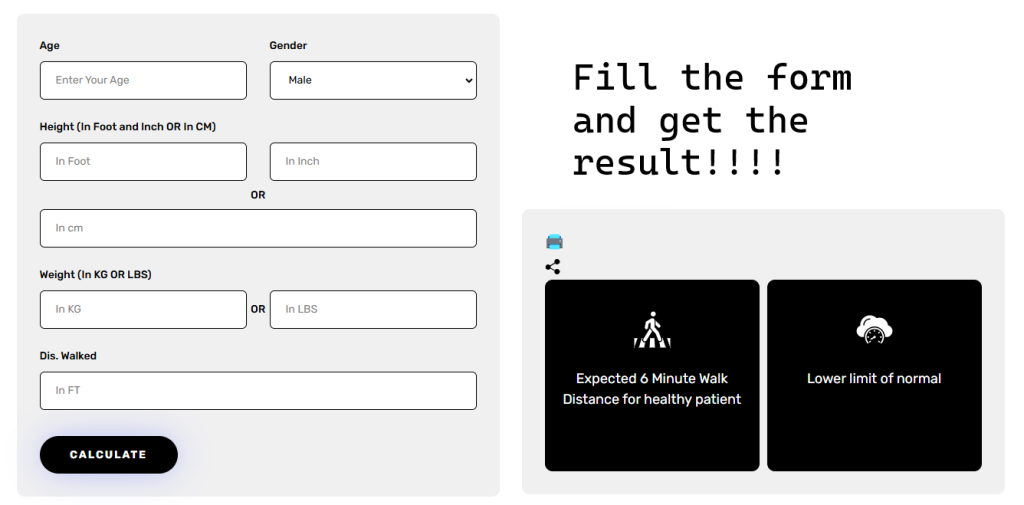How Much to Walk According to BMI Calculator. Maintaining a healthy weight is crucial for overall well-being, and walking is one of the simplest yet most effective ways to achieve this. Your Body Mass Index (BMI) can serve as a guideline for determining how much walking you should incorporate into your daily routine. This article explores the relationship between BMI and walking and provides recommendations on how much to walk based on your BMI category.
Understanding BMI and Its Categories
BMI is a numerical value derived from a person’s weight and height and is used to categorize individuals into different weight ranges. The formula for calculating BMI is:
BMI = Weight (kg) / Height (m²)
BMI Categories:
- Underweight: BMI below 18.5
- Normal weight: BMI 18.5 – 24.9
- Overweight: BMI 25 – 29.9
- Obese: BMI 30 and above
How Much Should You Walk According to Your BMI calculator?

Underweight (BMI Below 18.5)
- If you are underweight, excessive walking may lead to further weight loss.
- Aim for 30 minutes of moderate walking five times a week.
- Focus on maintaining weight rather than burning excess calories.
- Pair walking with a balanced diet to build muscle mass.
Normal Weight (BMI 18.5 – 24.9)
- To maintain weight, aim for 150 minutes of moderate-intensity walking per week (e.g., 30 minutes, five times a week).
- If you wish to improve cardiovascular health, consider increasing walking duration or intensity.
- Brisk walking or interval walking (alternating fast and slow paces) can be beneficial.
Overweight (BMI 25 – 29.9)
- To lose weight effectively, increase your walking duration to 45-60 minutes per day.
- Aim for at least 300 minutes of walking per week.
- Increase the intensity by incorporating uphill walks or brisk walking.
- Combine walking with a healthy diet to accelerate weight loss.
Obese (BMI 30 and Above)
- If you have obesity, start with low-impact walking for 20-30 minutes daily.
- Gradually increase to 60 minutes per day.
- Walking at a moderate pace of 3-4 mph can burn around 250-400 calories per hour.
- Consider breaking up walking sessions into smaller chunks (e.g., 15 minutes, four times a day).
Additional Tips for Effective Walking
- Use a pedometer or fitness tracker: Aim for 7,000 to 10,000 steps daily, depending on your BMI and fitness level.
- Incorporate strength training: Adding resistance exercises can enhance weight loss and improve muscle tone.
- Stay consistent: Walking regularly is more important than intensity.
- Hydrate well and maintain good posture: Proper hydration and posture help in avoiding injuries.
Conclusion: How Much to Walk According to BMI Calculator?
Walking is an excellent, low-impact exercise that helps manage weight and improve overall health. The amount you should walk depends on your BMI and health goals. Whether you aim to maintain your weight, shed excess pounds, or improve fitness, a tailored walking routine can make a significant difference. Always consult a healthcare professional before making drastic changes to your exercise routine.
Click here to know more about weight loss. Subscribe to Workout with Hunar for weight loss and workout videos.
How Much to Walk According to BMI Calculator, walking calculator, 6 minute walking calculator,














